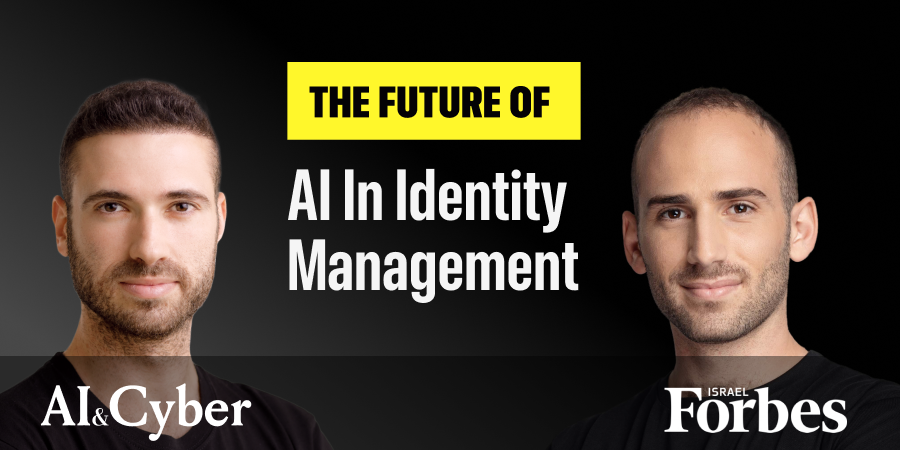Ron Nissim and I first met years ago during our service in Unit 8200, Israel’s renowned intelligence unit, where cybersecurity wasn’t just a concept—it was our daily mission. Over time, our paths ran in parallel as we both transitioned into entrepreneurship, founding startups dedicated to tackling evolving cybersecurity threats. This shared background has given us a unique lens into the cybersecurity landscape, especially now, as we both grapple with the rapid integration of artificial intelligence into the core of our industry.
Identity and Access Management (IAM), a foundational pillar of enterprise security, is currently experiencing a pivotal transformation accelerated by the adoption of AI. My recent conversation with Ron, Co-founder and CEO of Entitle (now part of BeyondTrust), highlighted precisely why IAM must quickly evolve to remain relevant and effective in the AI-driven world.
Historically, IAM has posed substantial challenges because each organization’s permission structures are uniquely customized around their business-specific needs. This diversity makes traditional IAM solutions, which rely heavily on static permissions and manual processes, cumbersome and often outdated. Today, with the widespread adoption of SaaS applications and extensive cloud migration, these legacy IAM systems struggle under increased complexity, scale, and fluidity.
One of the most promising innovations addressing these challenges, as our discussion emphasized, is “Just-in-Time” (JIT) access. Instead of relying on pre-set roles or static permissions, JIT leverages AI to dynamically grant permissions exactly when needed, based on real-time contextual data and intelligent risk assessment. This creates a more adaptive and responsive security framework, essential for today’s fast-paced, distributed organizations.
During our exchange, Ron underscored the fundamental shift enabled by AI’s real-time data processing capabilities. Organizations previously relied on manual updates or simple automation, both of which quickly become obsolete. AI allows permission decisions to be context-driven, automatically taking into account factors like a user’s current location, device status, task-specific requirements, and other nuanced risk signals. As Ron highlighted, automation in IAM “is not just a theoretical shift; it is already producing tangible, superior security outcomes.”
Still, many enterprises hesitate to fully embrace automation, fearing a perceived loss of control. However, our conversation pointed toward a rapidly changing sentiment. Organizations are increasingly witnessing firsthand the reliability and efficacy of AI-driven decision-making in cybersecurity. Rather than eliminating human oversight, AI amplifies security teams’ capabilities, providing deeper insights and empowering administrators to act strategically rather than reactively.
Entitle’s own growth trajectory further illustrates this point. Ron described how clearly aligning their innovative Cloud Privileged Access Management (Cloud PAM) offering within a recognized market segment accelerated their success. Instead of positioning itself as an entirely novel solution, Entitle found greater success by explicitly addressing existing market demands. Their subsequent integration into BeyondTrust underscores another crucial insight: truly successful cybersecurity innovations marry advanced technology seamlessly with practical business processes and customer needs.
At Clarity, where we focus on protecting organizations from AI-powered phishing and deepfake attacks, this discussion reinforced my conviction in the importance of dynamic, context-aware cybersecurity. Attackers now leverage AI-driven techniques, leaving no choice but for defenders to deploy equally sophisticated AI countermeasures.
Reflecting on our shared entrepreneurial journey, I asked Ron for the advice he’d offer himself five years ago. His response was clear and impactful: “Listen carefully to your customers. Their feedback, more than anyone else’s opinions, defines your product’s true value.” This resonates deeply, highlighting a universal truth every cybersecurity entrepreneur must internalize, particularly amidst rapidly changing industry dynamics.
Ultimately, IAM’s future lies unmistakably in AI-powered adaptability. Organizations that proactively shift from static to intelligent security frameworks will be best positioned to defend themselves effectively against emerging threats. Those slow to adapt risk exposure in an increasingly sophisticated cyber landscape.
Michael Matias is the CEO and Co-Founder of Clarity, an AI-powered cybersecurity startup backed by venture capital firms including Bessemer Venture Partners and Walden Catalyst. Clarity develops advanced AI technologies protecting organizations from sophisticated phishing attacks and AI-generated social engineering threats, including deepfakes. Before founding Clarity, Matias studied Computer Science with a specialization in AI at Stanford University and led cybersecurity teams in Unit 8200 of the Israel Defense Forces. Forbes Israel recognized him early on, naming him to the exclusive 18Under18 list in 2013 and the Forbes 30Under30 list thereafter. Matias authored the book Age is Only an Int and hosts the podcast 20MinuteLeaders.





